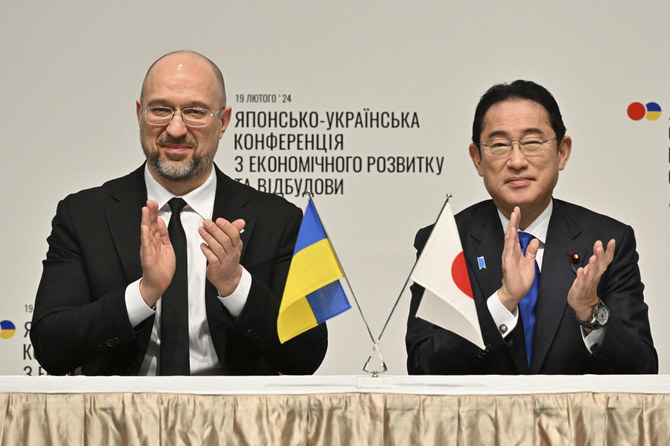
Official says capital flight last year led to almost $1.5 billion in losses
KABUL: Growing insecurity, political instability, and a lack of confidence in Afghanistan’s future has driven hundreds of businessmen out of the country, leading to almost $1.5 billion in losses last year for the already fragile economy, the deputy head of Afghanistan’s Chamber of Commerce and Investment (ACCI) told Arab News on Sunday.
“In 2020 alone, unfortunately, based on our estimates, 1,500 small-scale traders, investors and businessmen left the country because of infighting among government leaders, rising insecurity and corruption,” Khan Jan Alokozai said.
“Our unofficial estimates indicate that there was capital flight of at least $1.5 billion that was sent or taken overseas for investment last year,” he added.
Alokozai traced the investors’ exit to late 2014, when Afghanistan saw a drastic drawdown of US-led troops, resulting in infighting between President Ashraf Ghani and the then chief executive Dr. Abdullah Abdullah following allegedly fraudulent elections where both claimed victory.
The power struggle between the two leaders was further exacerbated during the 2019 polls that allowed the Taliban to gain ground, even as regional commanders and self-proclaimed ethnic leaders “pushed for their type of future government.”
It also follows a deadlock in the intra-Afghan peace talks between Ghani’s government and Taliban representatives. The talks began in September last year and have failed to make any progress in the peace process.
Fearing a repeat of events due to internal divisions within the government — which led to the fall of the Moscow-backed communist regime in the 1990s, following the departure of the former Soviet Union’s troops — Alokozai said that a majority of investors had opted to settle in Turkey instead, with “60 percent of the private sector shutting down their activities in Afghanistan in recent years.”
He added: “These traders have bitter experiences from the fall of Dr. Najib (communist-era president), which happened as a result of an internal war, and they want to leave now.
“About 60 percent of the private sector has ended activities in recent years. Factories have closed, and only those involved in businesses such as food and fuel items operate. We had some $15 billion in our annual circulation, but it has dropped to $6 or $7 billion now,” he added.
The losses have trickled down to the tertiary level as well, since most Afghan investors and traders “spend 25 percent of their income on bodyguards and armored vehicles, apart from the losses they incur due to daily violence across the country and the payment of bribes,” Alokozai said.
He cited the example of a leaked video of Minister of Finance Khalid Payenda telling officials that “$1 million is looted from the customs division in the western city of Herat alone every day.”
Alokozai added that recent developments surrounding the deadline for the complete withdrawal of US-led troops from Afghanistan has also affected the market, “not because of the possibility of the return of the Taliban,” but due to fears that the departure could push the country “back into a civil war.”
He said: “There is a big mistrust among leaders and people about the future of the country and anarchy in government. The traders are not afraid of the return of the Taliban. There will be some social restrictions, but overall the Taliban have treated the business community well, because they do not allow corruption and mafia activities.”
Saifuddin Saihoon, a Kabul-based economic expert, agreed, and said that the loss of capital and investors would have a “long-term impact on the economy of Afghanistan,” which has relied on foreign funds since the Taliban’s ouster in the US-led invasion of 2001.
“This causes the economy to slow down, closure of factories and joblessness, and gradually an economic crisis, as well as psychological fears about the future of the country,” Saihoon told Arab News.












